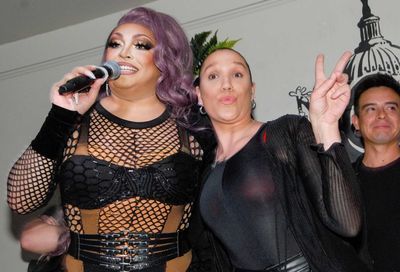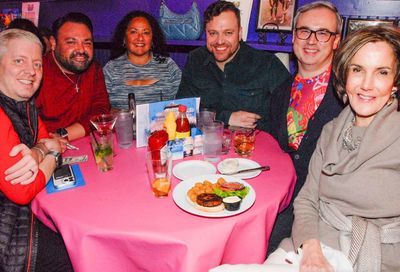Mississippi Libraries Ban Youth from Accessing E-Books
Law banning access to “sexually oriented” materials treats LGBTQ-related or sexual health books the same as pornography.

Mississippi minors are being denied access to widely used e-book and audiobook platforms due to a new book-banning law.
The law, which went into effect at the beginning of July, purportedly intends to protect minors from digital resources and databases that contain “sexually oriented” materials.
The impact? Because OverDrive, Hoopla, and Mississippi state libraries lack age-based content restrictions, some public libraries are making their online databases –- including those entirely lacking in sexual content — entirely inaccessible to all young people under the age of 18, including disabled minors who may depend on audiobook or e-book access to read.
“This move by the state ensures that those with the least privileges — those in unstable homes, those without regular internet access, and those without active parents or guardians in their lives — have even fewer opportunities to utilize public goods and services,” Kelly Jensen, the editor of Book Riot, the largest independent editorial book site, wrote in analyzing the ban.
Given how existing Mississippi law defines “sexually oriented” materials, vendors could potentially be deemed to be violating the law by providing access to materials depicting sexual reproduction, nudity or displays of human anatomy, sexual health information, or depictions of LGBTQ identity. Depictions of any of these topics would be treated as equivalent to providing access to hardcore pornography.
Violators of the law can face fines between $500 and $5,000, as well as possible prison time. If a vendor provides access to digital or online resources containing “sexually oriented” materials, libraries and schools are permitted to withhold payments from that vendor.
The newly approved law also opens up the possibility for additional library resources to be blocked or restricted in the future. Under the law, teenagers over the age of 16 must obtain their parents’ permission before they can get a library card.
Education has emerged as a battleground in the culture wars as conservative parents challenge books and school curricula they claim to be inappropriate, morally objectionable, or pushing a “political agenda.”
Recently, in Florida, the authors of And Tango Makes Three, a children’s book — based on real-life events — about two male penguins hatching an egg and raising a chick, have sued a Florida school district for banning the book from school libraries in order to comply with a state ban on LGBTQ content in schools.
In their lawsuit, the authors argue that the ban not only unfairly and falsely characterizes the book as inherently “sexual,” but constitutes censorship, in violation of the First Amendment.
“By discriminating based on content and viewpoint, it infringes the author’s right to freedom of expression,” the lawsuit says. “By restricting access to a book, which was previously freely available, for narrowly partisan and political reasons, it infringes students’ right to receive information.”
Support Metro Weekly’s Journalism
These are challenging times for news organizations. And yet it’s crucial we stay active and provide vital resources and information to both our local readers and the world. So won’t you please take a moment and consider supporting Metro Weekly with a membership? For as little as $5 a month, you can help ensure Metro Weekly magazine and MetroWeekly.com remain free, viable resources as we provide the best, most diverse, culturally-resonant LGBTQ coverage in both the D.C. region and around the world. Memberships come with exclusive perks and discounts, your own personal digital delivery of each week’s magazine (and an archive), access to our Member's Lounge when it launches this fall, and exclusive members-only items like Metro Weekly Membership Mugs and Tote Bags! Check out all our membership levels here and please join us today!























